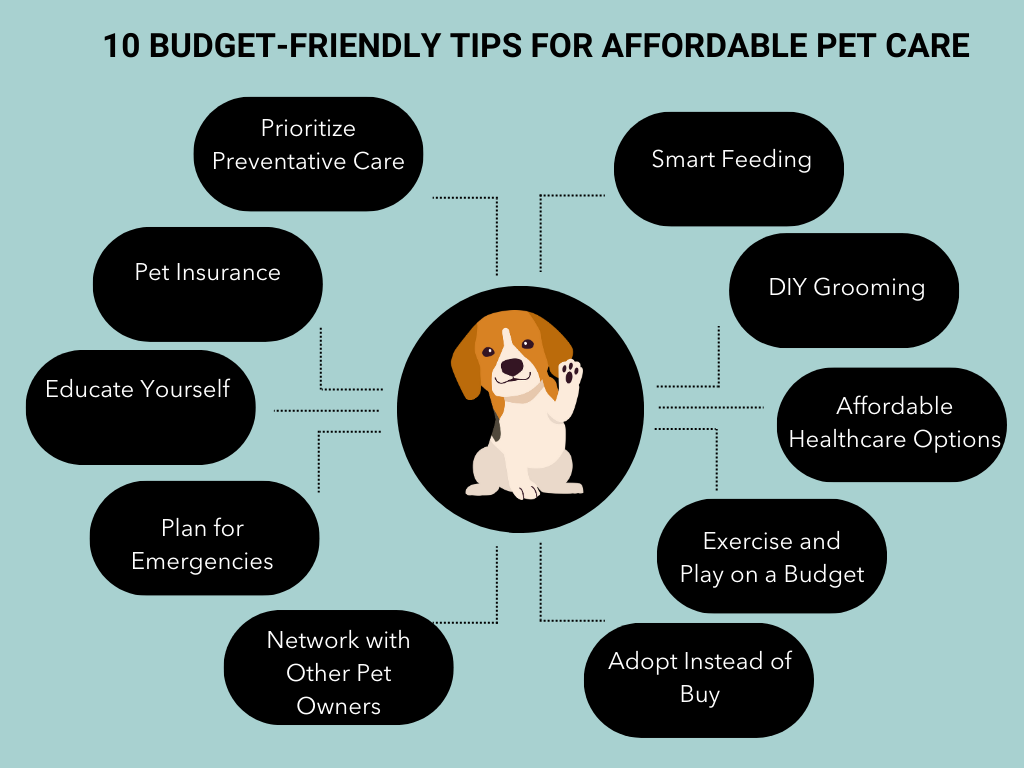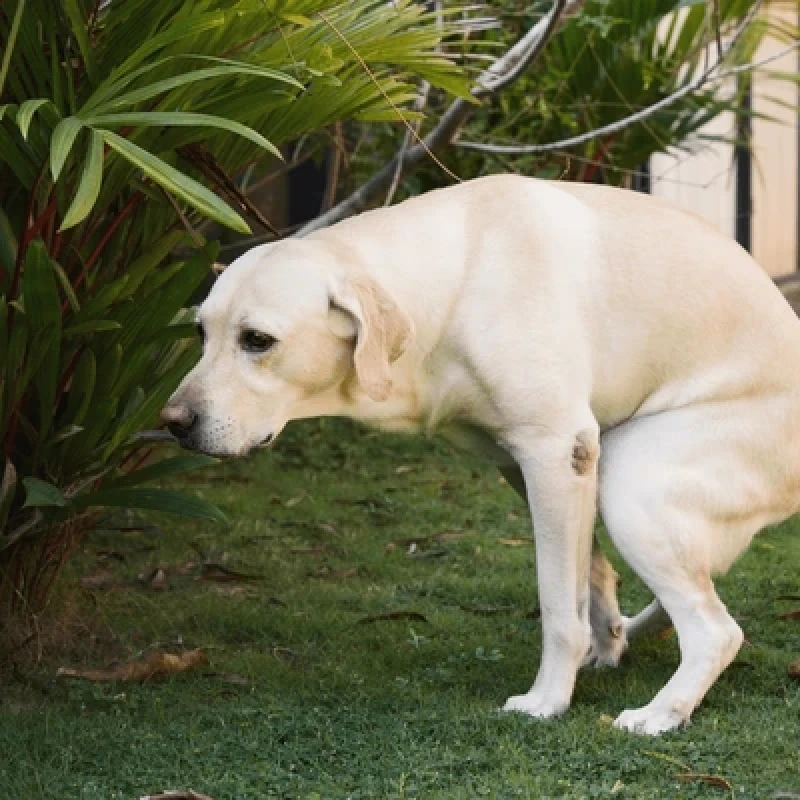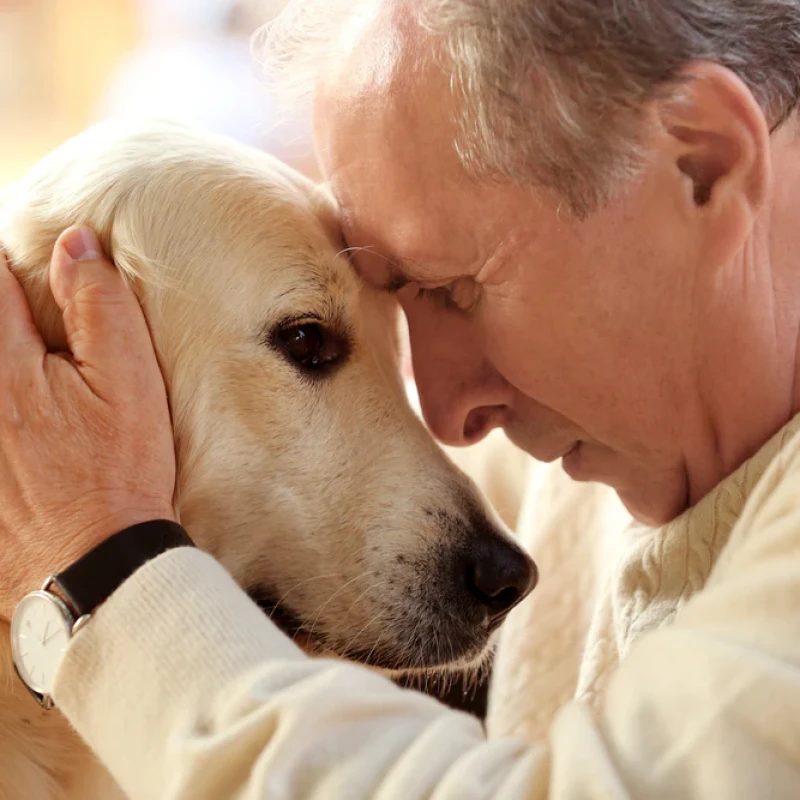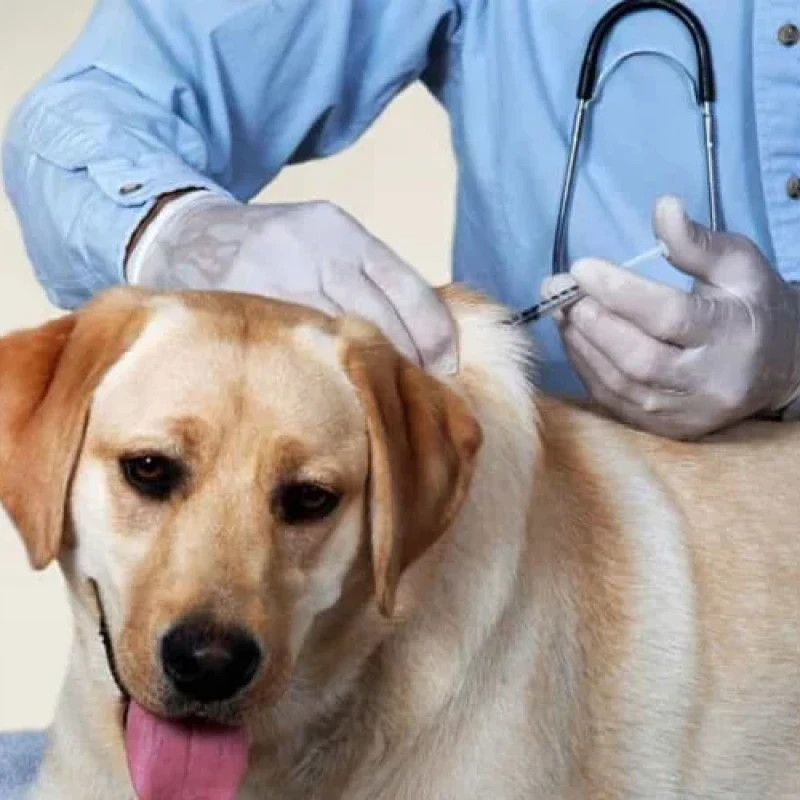Understanding dog care tips is essential to keep your puppy healthy. It's not just about picking an active dog from the store, feeding it a lot, and giving it a bath. So, what should you do? In this article, Pet Mart will share some essential dog care tips you need to know before bringing your new pet home.

Choosing a Reliable Place to Buy a Dog
It's best to buy dogs from breeders who have the mother dog at home or directly import dogs with clear origins and lineage. Look for active, healthy puppies that come with a "health record" showing the vaccines they have received and the dates of their regular deworming.
According to experienced dog owners, puppies under 2 months old still depend heavily on their mother. Separating them from their mother too early can make it difficult to care for them. You should choose lively puppies over 2 months old. At this age, they are easier to raise and more stable.
First, they should be able to separate from their mother and wean off milk. Their weaning process should be stable, and the puppies are starting to get used to dog food instead of just mother's milk. Their bodies are also gradually stabilizing. Puppies at this stage have not yet developed their personalities, making it easier for you to train them. Older dogs are usually familiar with their previous environment, so they may find it hard to adapt to a new home.
Currently, there are many reputable breeders for various dog breeds such as Husky, French Bulldog, Rottweiler, Poodle, Alaskan, Pomeranian, German Shepherd, etc. You can check their websites or ask experienced dog owners for recommendations.
Experience Raising Dogs When They First Arrive Home
Health Check You should take your dog to an experienced veterinarian for a thorough health check and direct advice on how to care for your puppy. You can request the vet to provide a health record if you don’t already have one for easy monitoring.
Preparing the Dog’s Living Space According to many dog owners, a dog’s living area should be well-ventilated, warm, and airy. Avoid letting your dog lie under an air conditioner or in front of a fan, as this can easily lead to cold-related illnesses or coughing. Do not place the dog in high positions such as windows, balconies, or staircases.
Bathing the Dog When you first bring your puppy home, you shouldn’t bathe it immediately with water. If the puppy smells, you can do a dry bath. Bathing it right away can increase the risk of pneumonia and other serious infectious diseases. During the first few nights away from its mother and previous owner, the puppy may whine. You should comfort and pet it to help it feel secure in your arms.
Experience in Feeding Dogs
Providing Sufficient Nutrition The best way to care for your dog is not necessarily to feed it gourmet food. It should be well-balanced and nutritious. Do not let your dog go hungry or overeat. Especially for puppies, they tend to eat whatever is given to them. You should adjust the portions accordingly. Encourage your dog to eat dry food to avoid stomach issues and ensure a balanced diet. You can also change up their meals by mixing in pâté or sauces to make their food tastier.
Never feed your dog chocolate, as it is very dangerous and can be fatal. Limit sugary snacks and treats. If they are interested in snacks, you should buy special dog treats. Dogs love to chew bones; however, raw chicken or duck bones can be extremely dangerous. Bone fragments can tear the intestines and stomach. If you feed your dog fish, be sure to remove all the bones to prevent choking.
The dog’s diet should include sufficient nutrients and energy, such as protein, fats, carbohydrates, minerals, and vitamins. Avoid overusing medications or processed foods. It’s crucial not to feed puppies too much milk, smelly fish, fatty foods, or overly salty foods. Especially, avoid feeding them lungs or liver from cows or pigs, as these organs contain many toxins that can cause cancer. It’s best to feed your puppy lean meat or plain rice porridge. Ensure that your dog gets enough meals.
Feeding Dogs Scientifically Feed puppies about 3–4 meals a day. Stop feeding them just before they are full. Do not leave food out for them to eat at any time. Always provide clean water, and ensure feeding bowls are always washed and dried. If you want to change your dog’s food, wait about a week. Start by mixing one part of the new food with three parts of the old food. Then, move to half old and half new, gradually transitioning to three parts new and one part old until they are fully on the new diet.
Puppies love to chew, and they may gnaw on shoes, which not only damages your belongings but can also lead to choking and digestive blockages. Keep these items out of reach. Look for chew toys and calcium bones at Pet Mart to help with this issue. If you notice any unusual symptoms in your dog, such as vomiting, loss of appetite, lethargy, or diarrhea, stop feeding or giving milk and consult a veterinarian.
Experience in Health Care for Dogs Each developmental stage requires different care routines. You should supplement your dog’s diet with nutritional powder to ensure they have all the necessary nutrients.
- Under 2 months old: Feed 6 times a day, every 3–5 hours.
- 2–4 months old: Feed 5 times a day, every 4 hours.
- 4–6 months old: Feed 4 times a day.
- 6–10 months old: Feed 3 times a day.
- Over 10 months old: Feed 2 times a day, like an adult dog.
Once a week, you can give your puppy a larger meal and one cooked egg, gradually introducing raw eggs until they can eat them without issues. After 5 months, you can supplement their diet with small amounts of fresh raw beef or pork, increasing gradually. A dog’s meal should not last more than 5 minutes. If they finish their food and still seem a little hungry, that's enough.
After meals, allow your puppy to run freely and relieve itself to aid digestion. After an evening walk, you can offer your dog a little milk or diluted sugar water. If there is leftover food after your puppy eats, discard it and reduce the portion for the next meal.
Medical Care Notes for Puppies For dogs under 6 months, you should administer deworming medicine after they reach 1 month old. Then, deworm them monthly until they are 6 months old.
For dogs over 6 months, deworming should be done every 3–4 months. According to experienced dog owners, it is essential to vaccinate your dog. If you want to keep them long-term, they need to be protected from certain dangerous diseases. Some serious diseases include Canine Distemper (Carre), Canine Parvovirus, Hepatitis (Adenovirus type 1), Respiratory disease (Adenovirus type 2), Canine Parainfluenza, and Leptospirosis. Typically, these vaccines are given in a single shot. However, rabies vaccinations must be updated every year.
Forbidden Foods for Dogs
There are several dangerous foods for dogs shared by experienced dog owners. You definitely should not feed these to your puppy or should limit them as much as possible.
- Hot, cold, spicy, salty, sweet foods, and smoked foods.
- Freshwater fish. Only cooked sea fish should be fed.
- Avoid giving dogs too much noodles, beans, white bread, and potatoes.
- Do not feed dogs fatty pork, lamb, or raw chicken eggs.
- Spices such as chili, spicy tomato sauce, and pepper should not be added to dog food.
- Do not feed dogs spoiled or expired foods.
- Absolutely do not give dogs sausages, bologna, etc., as these foods are very toxic to dogs. They can damage the liver and may cause death before the dog reaches maturity.
- Dogs should not be fed bones. The first reason is that they cannot digest them properly. The second reason is that bones can cause constipation, intestinal blockage, etc. This is especially dangerous with bone fragments. Bones like chicken bones can splinter into sharp pieces that can puncture the intestines.
- Dogs should not eat sweet products, especially candies. Sweets can lead to a loss of appetite and disrupt the digestive process. Additionally, they can damage dental enamel and adversely affect the eyes (causing tears).
Essential Supplies for Dogs
Collars and Name Tags for Dogs
- Collars and name tags are very necessary. A name tag with your phone number attached to the collar will help keep your pet safe when you bring it home. In case your puppy gets lost, you will have a better chance of finding them.
Brushes and Toothpaste for Dogs
- According to experienced dog owners, it’s important to buy products specifically for pets and not to use human items. Try to find brushes with both large and small heads for convenience. This applies even when the dog is grown. Pet toothpaste can be swallowed without being harmful. Brushing your dog’s teeth daily will help prevent dental diseases.
Grooming Brushes for Dogs
- Dogs require brushes with both coarse and fine teeth. When purchasing, choose one with rounded tips to avoid injuring the dog’s skin. For long-haired dogs, a coarse-toothed brush is used to smooth the outer coat, while a fine-toothed brush is used for the inner coat. Grooming brushes are essential for dealing with tangled fur but should only be used when the hair is not matted.
Nail Clippers for Dogs
In addition to grooming brushes, you will also need another important tool for pet care: dog nail clippers. There are many types of scissors available, but ordinary scissors for cutting dog nails are sufficient for most owners. It is best to choose scissors with rounded tips to avoid accidentally injuring the dog's skin. Use scissors to trim hair around the eyes, ears, mouth, anus, and genital area, as well as to clip the dog’s nails regularly.
Experienced dog owners note that puppies are very sensitive to sound, especially when it comes to the noise made during nail trimming. If they have a bad experience, they may become fearful, so you need to reassure and comfort them.
Dog Clippers
- Dog clippers are used for cleaning fur, especially around the rear, where tangles may appear. They can also be used to shave off bloodstains for certain small breeds like Poodles or when a dog’s skin is affected. Before using them, you should consult with experienced dog owners.
Dog Carriers
- Dogs cannot always stay inside the house. Sometimes you need to take your puppy for a walk, to play, or to a spa for grooming. You can use specialized bags, carriers, or backpacks. Dog carriers made of durable fabric or leather are very durable and easy to clean, allowing you and your furry friend to go everywhere together.
Muzzles for Dogs
- Dogs also need protection with muzzles when going outside. This prevents them from eating strange and dangerous foods. Using a muzzle also helps protect the surrounding community, preventing your dog from biting or attacking strangers it encounters.
How to Care for Dog Fur
For breeds with long and thick fur like Huskies, Alaskans, or Samoyeds, you need to groom them regularly. Bathe them frequently using dog shampoo. Don’t forget to brush their fur regularly to prevent parasites from settling on their skin and fur. Fleas and ticks can latch on and suck blood, harming your pet's skin and leading to excessive shedding.
If you lack experience in dog grooming, consider using spa services for washing and trimming your dog’s fur, especially for puppies. After the puppy matures, you can bathe them at home.
To prevent parasite attacks, you should limit their contact with stray dogs or cats. Use flea collars for added safety. If your dog does get infested with fleas, you can buy specialized flea treatment products, which are safe and effective.
Walking Your Dog Daily
According to experienced dog owners, energy can only be expended through movement. This is true for pets as well. Exercise, play, and training help release energy. This is an extremely effective and safe way to care for your dog. If they remain inactive for too long, they can become stressed, overweight, and obese.
Owners should spend time playing with their dogs. It’s best to take them for a walk daily. You can also combine this with training exercises, such as fetching, frisbee, tug-of-war, etc., to strengthen your bond. Additionally, helping your dog get used to simple commands is beneficial. You might also consider getting another dog to play with your pet; leaving them alone in the house for too long can lead to unwanted behaviors.
Buying Dog Supplies and Accessories from Reputable Sources
Preparing supplies and accessories for your dog is also very important in dog care. This helps your puppy have a more comfortable and happier mindset. A good feeding bowl or a nice sleeping pad also contributes to the health of your small friends. Currently, Pet Mart offers many items for you to choose from, including food, supplies, accessories, clothes, toys, bathing products, and veterinary medicine—all guaranteed to be genuine.
You can refer to articles on essential supplies for beginners in dog ownership to learn how to choose suitable items for your dog breed.
Simple Cleanliness Tips for Dog Care
Have you learned how to keep your dog clean? After a tiring workday, returning to a peaceful home is vital. If you have a dog, is it too difficult to achieve? With their playful nature, they can mess up your home. Don’t worry, here are some useful cleanliness tips for dog care.
Teaching Dogs to Use Designated Bathroom Areas
Training Puppies Early
First, identify the area in your home where the dog will frequently stay. Since puppies may experience stress when facing a new environment, they might not know where to relieve themselves. It’s best to keep them in a kennel or a ventilated area to easily clean. Ensure that you have prepared a bed for the dog to use when you bring it home. You should also research methods for training this behavior.
Arrange the items around the dog's area since they may be very active and playful. Avoid having tangled wires nearby, as they are prone to chewing on them. Learn how to train dogs with simple commands to ensure they obey. Everyone in your family should use the same commands.
Dogs that relieve themselves all over the place are a common headache for owners. This behavior should be corrected early on. Cleanliness training helps them understand right from wrong.
Set a feeding, bathroom, and playtime schedule based on your family’s timetable. Initially, your puppy may feel uncomfortable as it adjusts to you and your new family. However, maintaining the schedule will help your dog understand your expectations and what it can expect from you.
Observing Habits and Guiding Puppies
If you are inexperienced in dog training, it may be challenging to enforce discipline initially. Spend a few days observing to determine when they typically need to relieve themselves. Usually, this happens in the morning after waking up and about 10-15 minutes after meals. This depends on the individual dog’s biological clock.
You can observe their behavior. When they need to go, they often turn in circles, show a desire to squat, or stretch their hind legs. At this point, you need to lead them to the designated bathroom area.
The dog's bathroom can be a wooden or cardboard box with low sides for easy entry and exit. Spread a layer of sand at the bottom. Place the box in a specific area, usually near where the dog plays. After a few tries, they will get used to it. You can also buy a stylish dog litter tray designed for easy use.
Once they are familiar, you can adjust the litter tray's position to different areas. More importantly, they will no longer relieve themselves inappropriately around the house.
Eating Habits
Many owners pay little attention to the designated eating area for dogs. Dogs should be fed in the right place. Use specific bowls for food and water to prevent them from eating wherever they please. This can be unhygienic and easy to poison them. Eating cleanly is also a crucial aspect of maintaining cleanliness for your dog.
When guests come over, do not allow them to feed your dog treats, as this can lead to the dog wanting to eat human food. Training should start as early as possible, as puppies are more receptive to lessons and can form good habits more easily.
Most experienced dog owners conclude that, by instinct, dogs tend to keep their living spaces clean. If possible, you can use specialized dog food. This will help keep their eating habits clean and simple while still providing necessary nutrients.
You can also feed your dog alongside your family. When feeding pets with
Tips for Cost-Effective Dog Care
Adopt a Dog for Free You can adopt stray dogs from rescue centers in cities like Hanoi, Ho Chi Minh City, and Da Nang. This adoption is often completely free or incurs a minimal fee. Giving a stray dog a home helps ensure they have a better life.
Vaccinate Your Dog If your dog often goes outside, they may be exposed to various viruses and diseases. Failing to vaccinate your pet when they are young can result in serious illnesses, such as gastrointestinal issues, respiratory diseases, rabies, parvovirus, and more. Treating these diseases can be expensive, and there’s no guarantee your dog will recover. To save on costs, make sure to vaccinate your dog before any illness occurs. You can take your pet to a veterinary clinic or participate in local vaccination campaigns.
Balanced Diet and Exercise Just like humans, overweight pets can develop serious health issues such as diabetes and heart disease. Consider buying your dog some balls or toys to encourage playtime, which also serves as exercise. A balanced diet and regular physical activity will help keep your pet healthy and in shape, which is the most cost-effective way to care for them.
Spay/Neuter Your Dog Experienced dog owners recommend spaying or neutering pets when they reach maturity. If left unaltered, the number of puppies can quickly become unmanageable, leading to high costs for their care. Spaying or neutering your dog helps you avoid these issues and promotes better health for your pet. Consult a veterinarian for detailed advice.
Keep Your Dog Indoors or in a Restricted Area Keeping your pet confined to your home or a designated area ensures they don’t roam freely and avoid potential accidents, such as getting hit by a car. While it may be easier said than done, it's important to be vigilant. If your pet runs out and causes an accident, the costs can be unpredictable. Treat this as a priority to protect your finances.
Be a Smart Shopper Do some online research to compare prices on dog supplies. However, remember that cheaper items are not always better. Inexpensive products may wear out quickly, leading to waste. Focus on finding a balance between price and quality. Don’t compromise on quality for the sake of saving a few bucks.
With these cost-effective dog care tips, we hope you find them helpful in raising your furry friend. Wishing you and your beloved dog a joyful life together!








